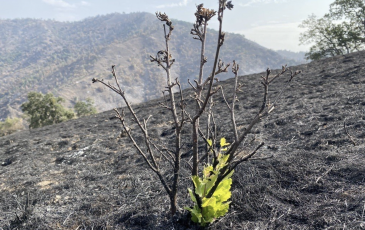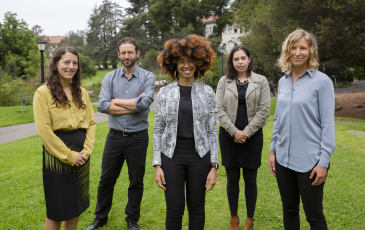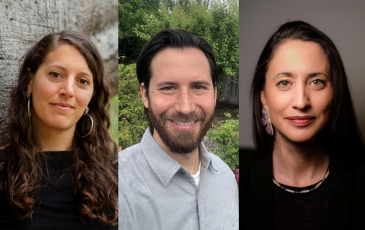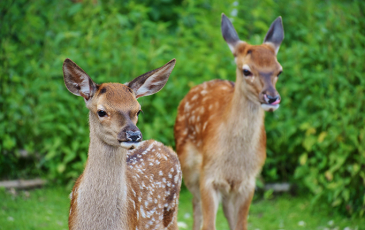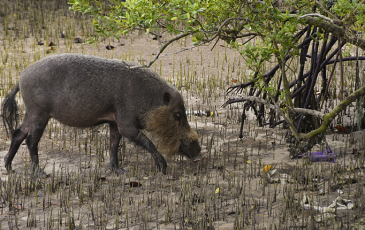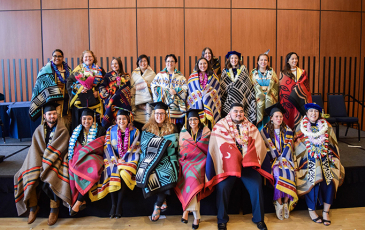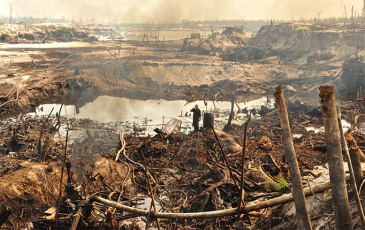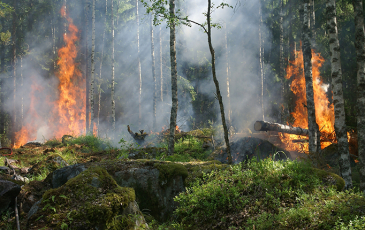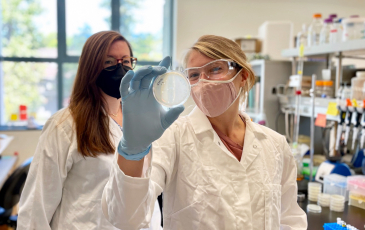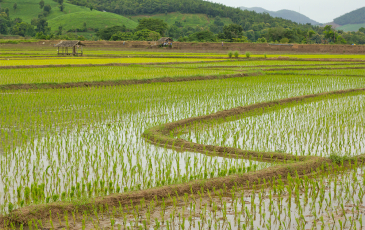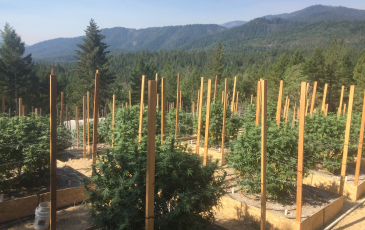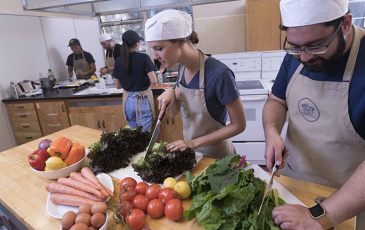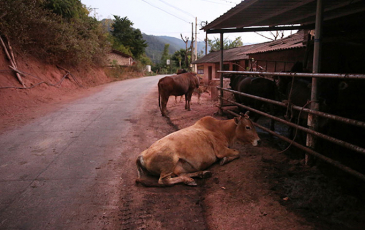Research at two UC Natural Reserves aims to reduce wildfire threats while boosting biodiversity.
New faculty to focus on climate change and environmental justice
New scholars across the university will bolster its research addressing energy equity and climate impacts on communities of color, marginalized, and underrepresented groups.
Spotlight on campus cluster hires
Rausser faculty, in both the Climate Equity and Environmental Justice and the Native American and Indigenous Peoples cluster hires, are featured in Berkeley News.
Patterns of income and urbanization linked to mammal biodiversity
Assistant professor of environmental science, policy, and management Christopher Schell co-authored a study published in the journal Global Change Biology.
Oil palm plantations reshape human hunting
Recent graduate alum Dave Kurz co-authored a study on shifting Indigenous practices now published in the journal People and Nature.
Drought and climate change shift tree disease in Sierra Nevada
In a study out today in Nature Communications, researchers at Berkeley and UC Davis explain the movement of infectious plant diseases.
New report details "first-of-its-kind" nutrition policy at Berkeley
Mary Lesser, a Nutritional Science & Toxicology researcher and lecturer, co-authored a report on the campus-wide program in the Journal of Nutrition Education and Behavior.
National Science Foundation awards $10 million to alliance of Native American institutions
With the funding, researchers at Berkeley and the University of Arizona aim to increase Indigenous participation in STEM education.
Why Sunflowers Face East
In a new study, scientists in the Blackman Lab have helped explain how sunlight orientation is connected to plant reproduction and pollination.
Indonesia: Spectacles of Small-scale Gold Mining
In a photo series exhibited on the UC Berkeley Library website, professor Nancy Lee Peluso documents her ethnographic fieldwork.
How wildfire restored a Yosemite watershed
Researchers in the Department of Environmental Science, Policy and Management and Berkeley Forests were featured in a Berkeley News article.
The Transformation of Africa’s Energy Sector
New research, co-authored by professor of energy and resources Dan Kammen, identifies actions to increase affordable, clean electrification across the continent.
A machine learning breakthrough uses satellite images to improve lives
Rausser College alumni are part of a team that devised a system that could make analyzing satellite data accessible and affordable for researchers and governments worldwide.
Maternal pre-pregnancy obesity connected to child developmental disorders
Cooperative Extension specialist Susana Matias co-authored a study published today in the journal Obesity.
A novel computing method for studying utility-scale renewable power systems
Energy and Resources Group researchers Duncan Callaway and José Daniel Lara share their open-source modeling approach in a new publication in IEEE Electrification.
Evolutionary arms race
In a study published in the journal Science, members of the Seed lab unlock genetic mechanisms behind cholera and its viruses.
Bogs, Bugs & Borgs
ESPM Professor Jill Banfield and her team are studying the microorganisms that live in rice paddy soils, with the aim of understanding how they contribute to greenhouse gas emissions—and how to intervene.
Cannabis farms irrigating with groundwater may affect stream flows
A new study from the Cannabis Research Center examined where cannabis growers in California are getting water for their crops, highlighting significant gaps in cannabis cultivation policy.
Assessing the impacts of NST’s Personal Food Security and Wellness course
In two new publications, researchers Susana Matias and Mikelle McCoin focus on diet and food security in students who participated in the integrated-kitchen nutrition course.
Analysis reveals global ‘hot spots’ where new coronaviruses may emerge
Paolo D'Odorico, a professor in the Department of Environmental Science, Policy, and Management, co-authored the new analysis published in Nature Food.


